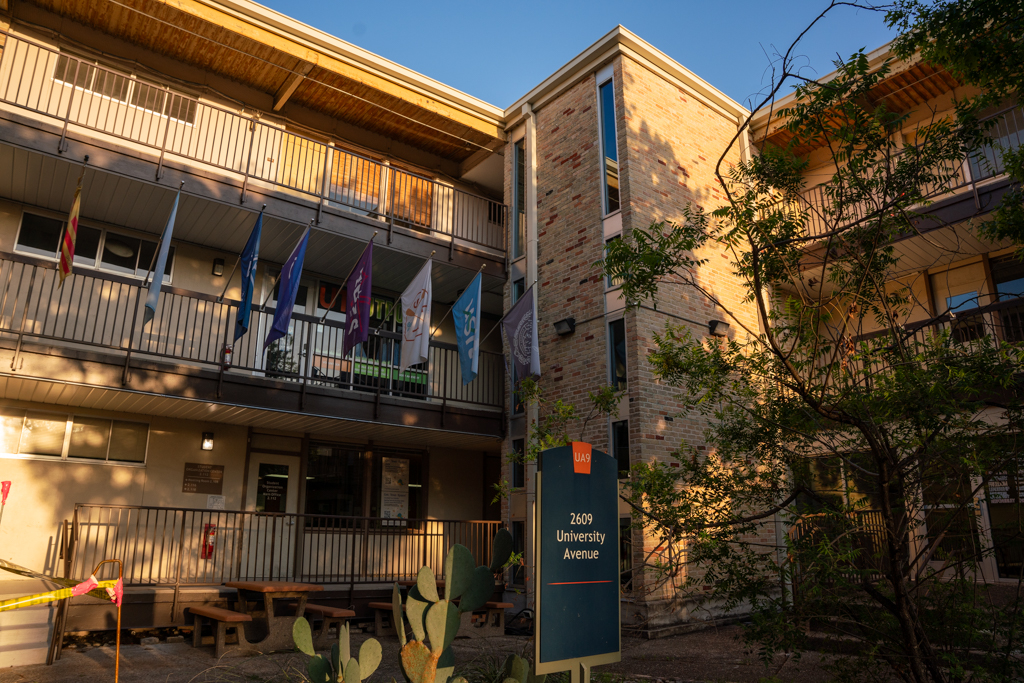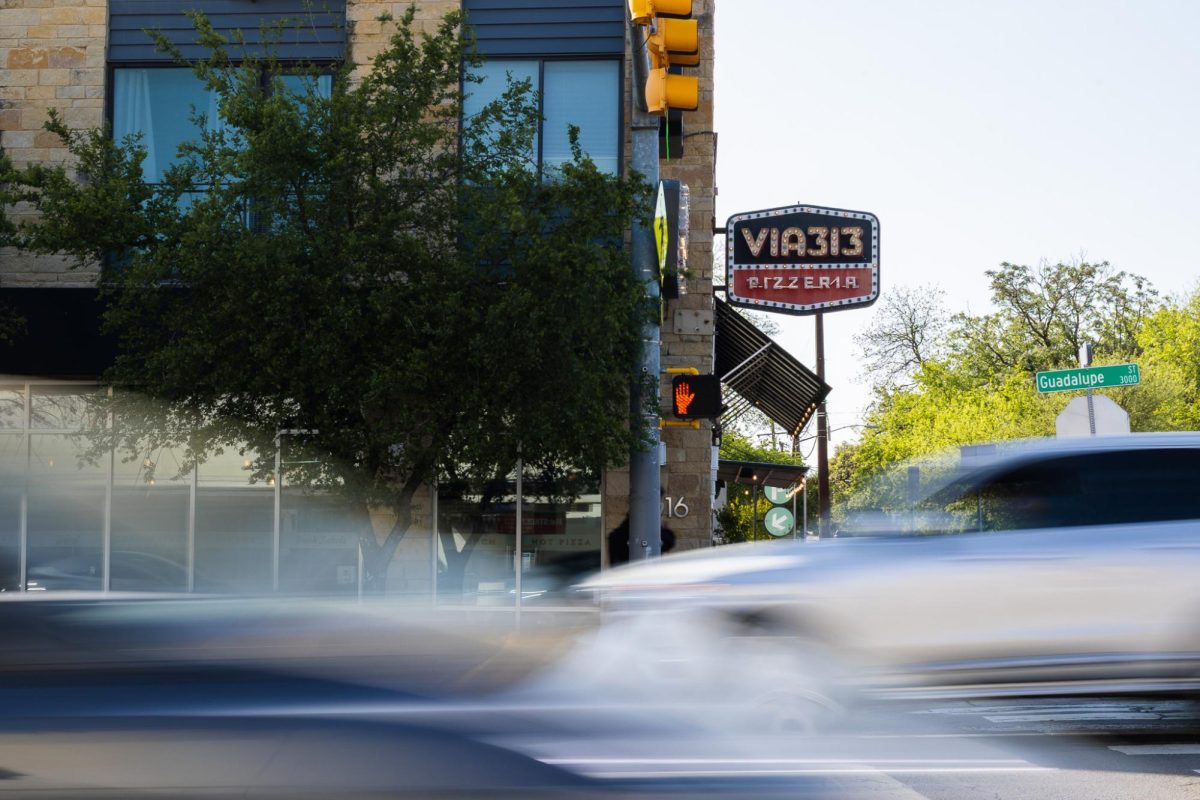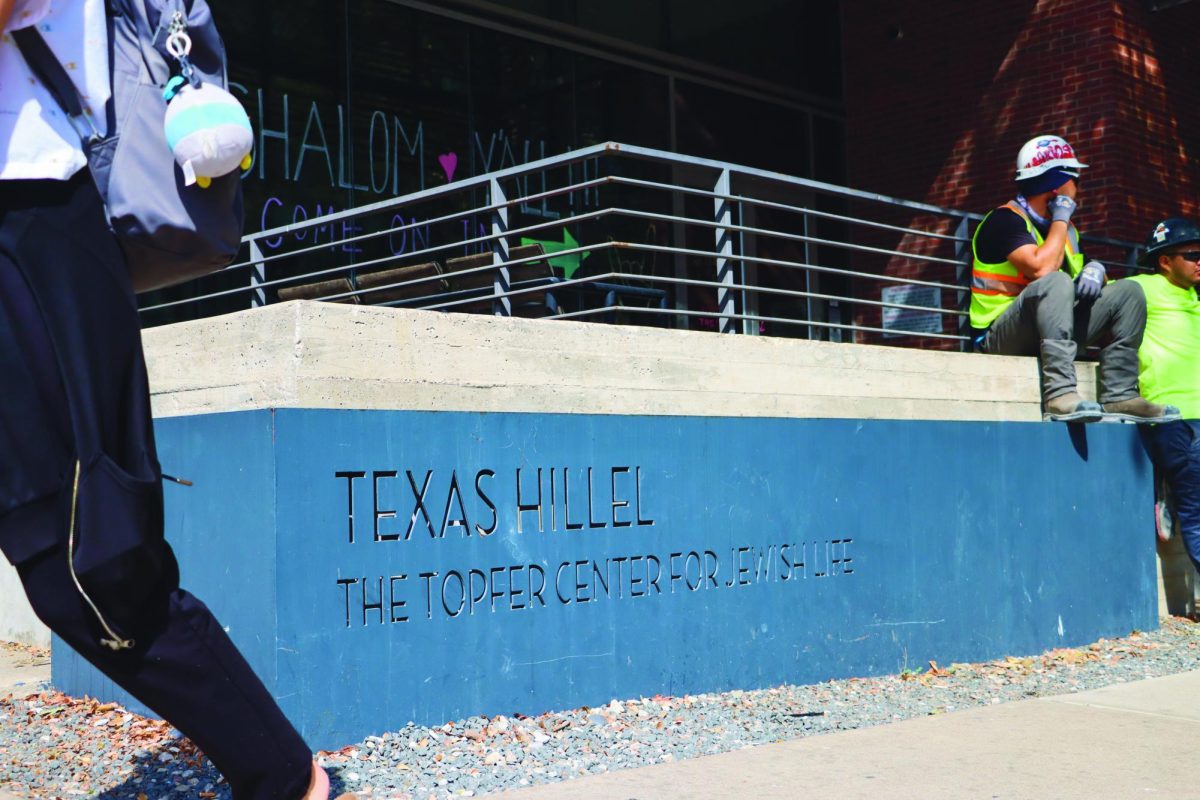Cody Young felt the University wasn’t taking immediate disciplinary actions after being a victim of a racially motivated attack in West Campus.
But privacy laws have left Young in the dark on its actions, and a lengthy proceedings process has extended the University’s ability to make a decision on the case now that a UT student and another man arrested in the attack have submitted an appeal to the University against Young’s complaint.
Young, a mathematics senior, called the police on Feb. 20 around 7:30 p.m. after three white men threw glass bottles and yelled “fuck you, n—–” at him at the intersection of Leon Street and 25th Street, according to an Austin Police Department arrest affidavit. After Young said he was going to call the cops, the men came down to the street and attempted to assault Young. The suspects, Tucker Sauer, 21, and Lucas Henderson, 20, were charged with public intoxication and deadly conduct after police arrived at the scene, according to the arrest affidavit. The third man involved, only identified as “Danny,” was not charged.
“I did nothing to provoke these gentlemen,” Young said. “I just literally walked out, and the first thing they saw was my skin color. And that provoked them to act in that way.”
Young said three to four days after the incident, he submitted a report to the Office of the Dean of Students, which handles administrative disciplinary processes for code of conduct violations. Sauer and Henderson, who were both Sigma Alpha Epsilon members at the time of the incident, are appealing the University’s potential disciplinary action, sources familiar with the matter said. Young said he feels frustrated with the situation after more than a month has passed with no announcement or update of disciplinary actions taken against the individuals.
“Thirty-five days later, and the process is still going on,” Young said. “Our University, that I love, that I’m about to graduate from, is telling me it’s going to take up to 75 days — at the most — for them to be able to do something.”
- Mathematics senior Cody Young, pictured here at the scene of the incident. Photo by Marshall Tidrick | Daily Texan Staff
Soncia Reagins-Lilly, dean of students and senior associate vice president for student affairs, said the disciplinary process is not a criminal process, and progress depends on time, logistics and scheduling.
“Our process is an administrative process, and it is parallel to any process that is criminal or civil,” Reagins-Lilly said.
The Dean of Students Office could not comment on the specific case because of the Family Educational Rights and Privacy Act (FERPA) of 1974, a federal law that pertains to the release of and access to educational records. However, Reagins-Lilly said knowing the rules behind the disciplinary process could reduce students’ frustration.
“I think understanding the process is important,” Reagins-Lilly said. “Students don’t understand the institutional rules that guide disciplinary matters and the variables that influence an investigation.”
In 2012 and 2013, UT minority students filed multiple reports of white students throwing bleach-filled balloons at them, but according to a statement by the Division of Diversity and Community Engagement, there was no evidence of bleach being used in the balloons. However, students said they felt like they were being targeted because of their race.
Officials within the Office of the Dean of Students said the University disciplinary process has procedures that provide a fair and impartial investigation and resolution, which may take several weeks given its appeals process.
“If there is an allegation or a concern, and it is brought forward and looked at against the institutional rules, which are established for all student organizations, depending on the allegations and circumstances surrounding it, the timing may vary on the investigation,” said Denny Bubrig, associate dean of student life.
Bubrig said the University has implemented several programs aimed at preventing discriminatory incidents and creating a more inclusive environment on campus. The Campus Climate Response Team is a program within the Dean of Students and DDCE that encourages students to contact the organization if they know of racist themed parties, derogatory terms or threats and hostile environments on campus.
- Infographic by Iliana Storch | Daily Texan Staff
Other universities were in the national spotlight when instances of racism shocked several college campuses in the last year. When a video surfaced of Sigma Alpha Epsilon fraternity members at the University of Oklahoma chanting a racist song, its local chapter was shut down, and dozens of students involved were disciplined.
Administrators at the University of Missouri stepped down following student protests and a threat to boycott by football players demanding action to stop events on campus that students found hostile for the black community.
Finance sophomore Kyle Davison, Black Student Alliance historian and Alpha Phi Alpha fraternity member, said he believes UT-Austin can improve how they handle these incidents by responding more quickly and publicly acknowledging them.
Davison, who said he has been a victim of racism in West Campus in an incident when derogatory terms were yelled at him, feels the school has a responsibility to make campus and its surrounding area safe.
“We come to school not expecting to receive criticism for the color of our skin, and it’s sad to say that I don’t feel safe walking on a place where I consider home,” Davison said.
The SAE officers at the UT-Austin chapter expelled the two members, which revokes their membership privileges completely, according to a statement from the national SAE organization.
“The facts in this case indicate that these men acted in complete isolation from the rest of the chapter, outside of any chapter event and not on chapter property in their use of racially insensitive language towards non-member students,” the national SAE organization said in a statement.
When The Daily Texan reached out to UT SAE executive members to confirm whether Sauer and Henderson were the members who were expelled, they declined to confirm.
When Sauer and Henderson were contacted for comment, Mindy Montford, an attorney representing the two men in the criminal case, said they were not able to comment during the pending criminal investigation.
“This was a regrettable incident in many respects, and these events do not accurately depict the character or attitudes of these young men,” Montford said in a statement. “Mr. Sauer and Mr. Henderson are cooperating fully, and we hope that all parties will wait until the completion of the case to make a final assessment about these events.”
Montford is also assisting the two students in the University disciplinary process.
Young — who currently serves as president of the UT-Austin chapter of Kappa Alpha Psi Fraternity, Inc., a historically black fraternity — still has not heard from Sauer and Henderson and does not know if they even know his name.
“I may still be anonymous to [them],” Young said. “Even if, [their] fraternity should have said something on campus. [Their] fraternity should have made an apology. When you put those letters on and you’re representing an organization, your actions are reflected immediately on that organization.”
Police Affidavits: Tucker Sauer and Lucas Henderson
This story has been updated since its initial publication to include the police affidavits for Tucker Sauer and Lucas Henderson, to clarify that the SAE members were expelled by officers at the SAE UT-Austin chapter, not the national organization, and to clarify that although Henderson was a member of SAE, he was not a UT student at the time of the arrest.






















